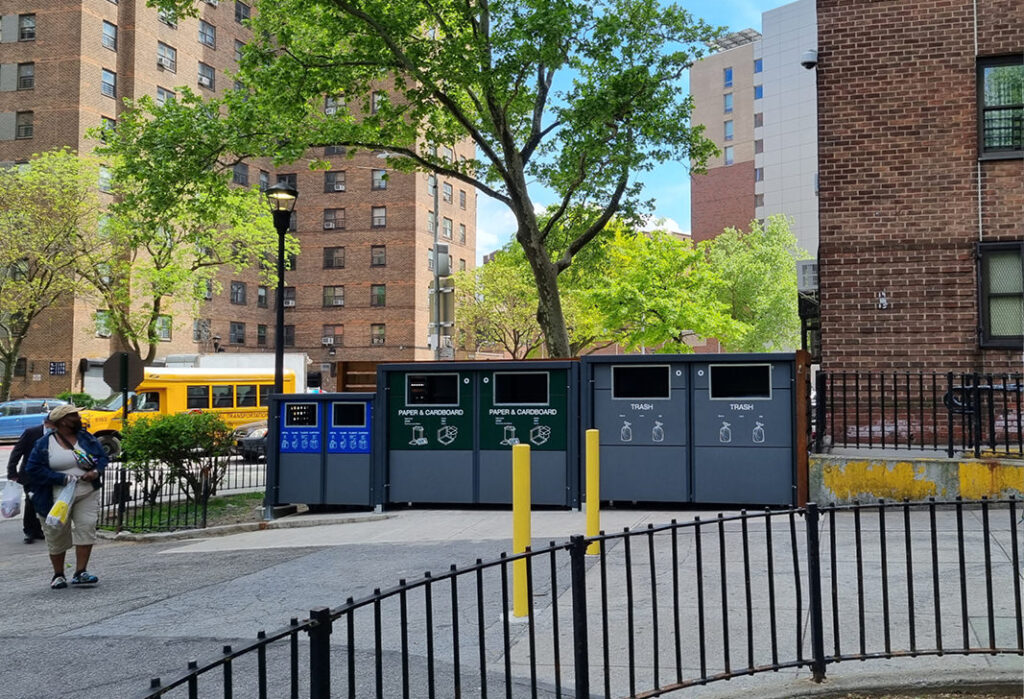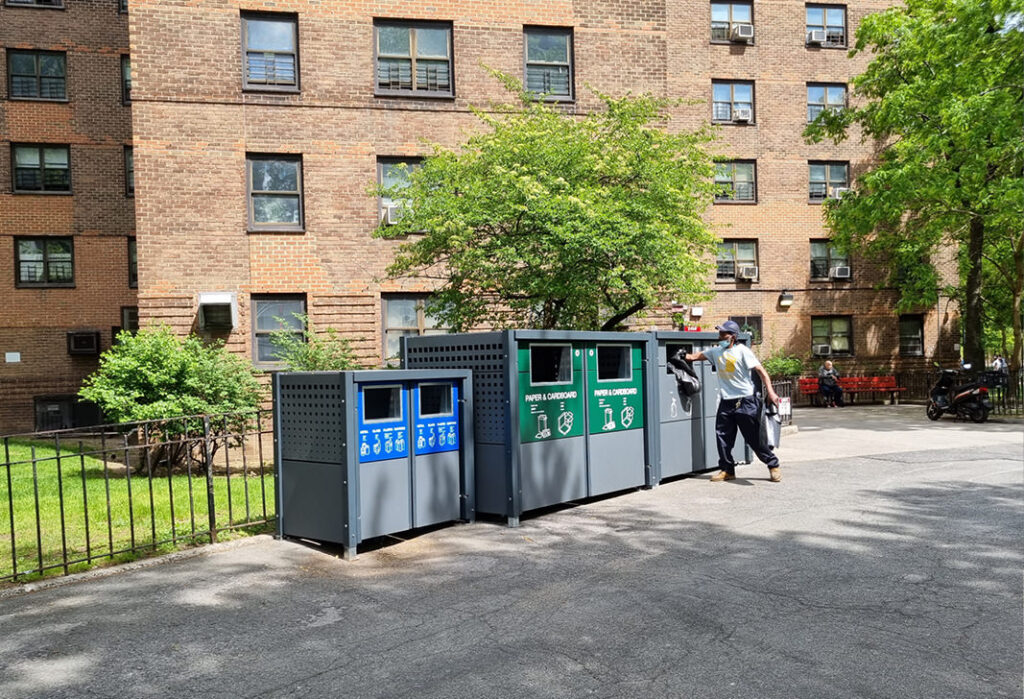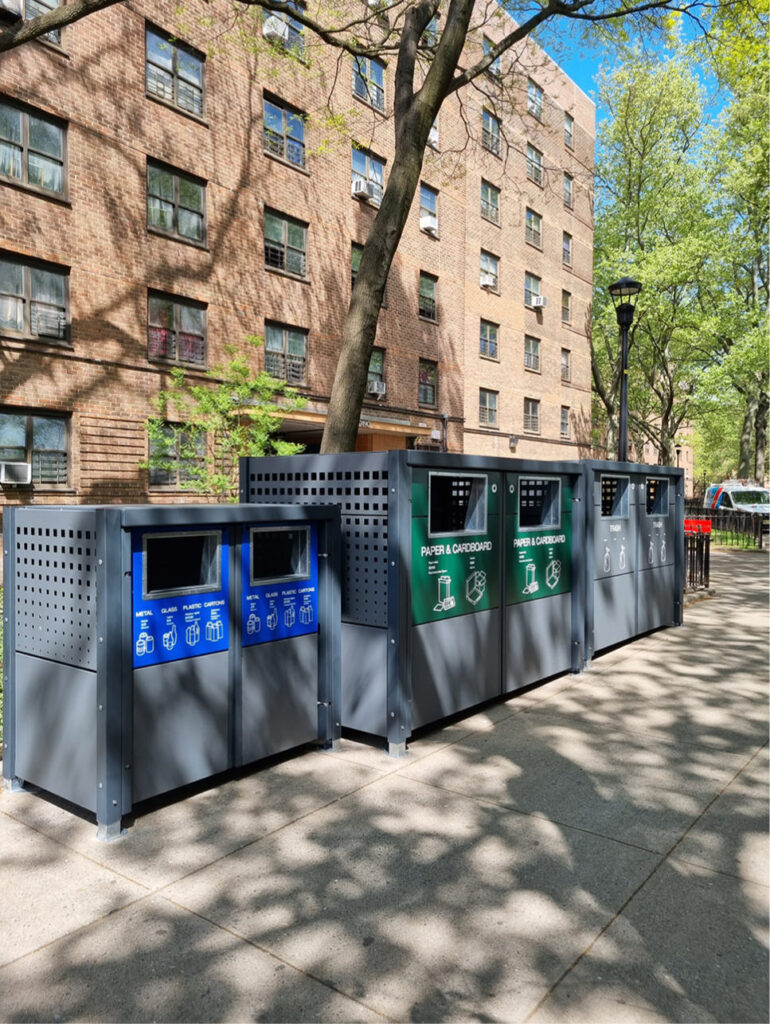
Wagner Houses Waste & Recycling Containerization Pilot, NYCHA
New York City Housing Authority (NYCHA) is the largest public housing provider in North America, with more than 177,000 apartments housing approximately 400,000 residents across the five boroughs. Established in 1935 during the Great Depression, NYCHA continues to provide affordable homes while supporting residents with access to essential public and community services.
Located in East Harlem, Wagner Houses is a large NYCHA development comprising 22 residential towers, up to 16 floors high. Completed in 1958 and named after New York Senator Robert F. Wagner, it is home to over 5,000 residents in over 2,000 apartments. Like many older high-density housing sites, Wagner Houses faced significant waste management challenges that were affecting both daily operations and quality of life.
Refuse chutes and open bag collection points discouraged recycling and created piles of waste at building entrances between collections. Large bags were sometimes dropped from upper floors and persistent issues with vermin and illegal dumping were impacting the surrounding environment. Previous recycling initiatives had limited effect, prompting NYCHA to explore new approaches that could encourage participation, improve cleanliness, and reduce health and safety risks.
Working in partnership with NYCHA, metroSTOR developed a pilot program for three tower blocks selected to represent a cross-section of the community. Secure, rodent-proof enclosures were installed at strategic points outside main entrances, providing residents with convenient, clearly marked drop-off locations for waste and recyclables and making collection easier for site staff.


Each deposit point included dumpster enclosure units for general waste, paper and cardboard as well as additional units to house 65-gallon carts for metal, glass and plastic. Clear multilingual signage, color-coded doors and visual guides helped reduce contamination and made the system accessible to all.

Ahead of installation, NYCHA ran a resident engagement campaign to introduce the new facilities and distribute reusable recycling bags for in-home use. The results were immediate: public spaces remained cleaner, rodent activity declined, illegal dumping decreased and large volumes of well-sorted recycling were collected from each building. Staff reported easier servicing, with larger apertures allowing bulky cardboard and bagged waste to be deposited without issue.
NYCHA’s Programs and Policy Advisor, Louisa Denison, noted: “The metroSTOR recycling stations remain tidy more than a year after installation. Residents have embraced the system, saying the containers are much cleaner and more attractive than the previous setup. The units encourage recycling and the larger apertures allow bulky items to be deposited easily. They have positively impacted diversion rates, particularly for paper and cardboard.”
The Wagner Houses pilot has demonstrated how targeted waste and recycling infrastructure can address persistent challenges in large housing communities. With measurable improvements in cleanliness, participation and operational efficiency, it provides a strong model for containerization across other NYCHA properties, supporting the city’s wider zero-waste goals.